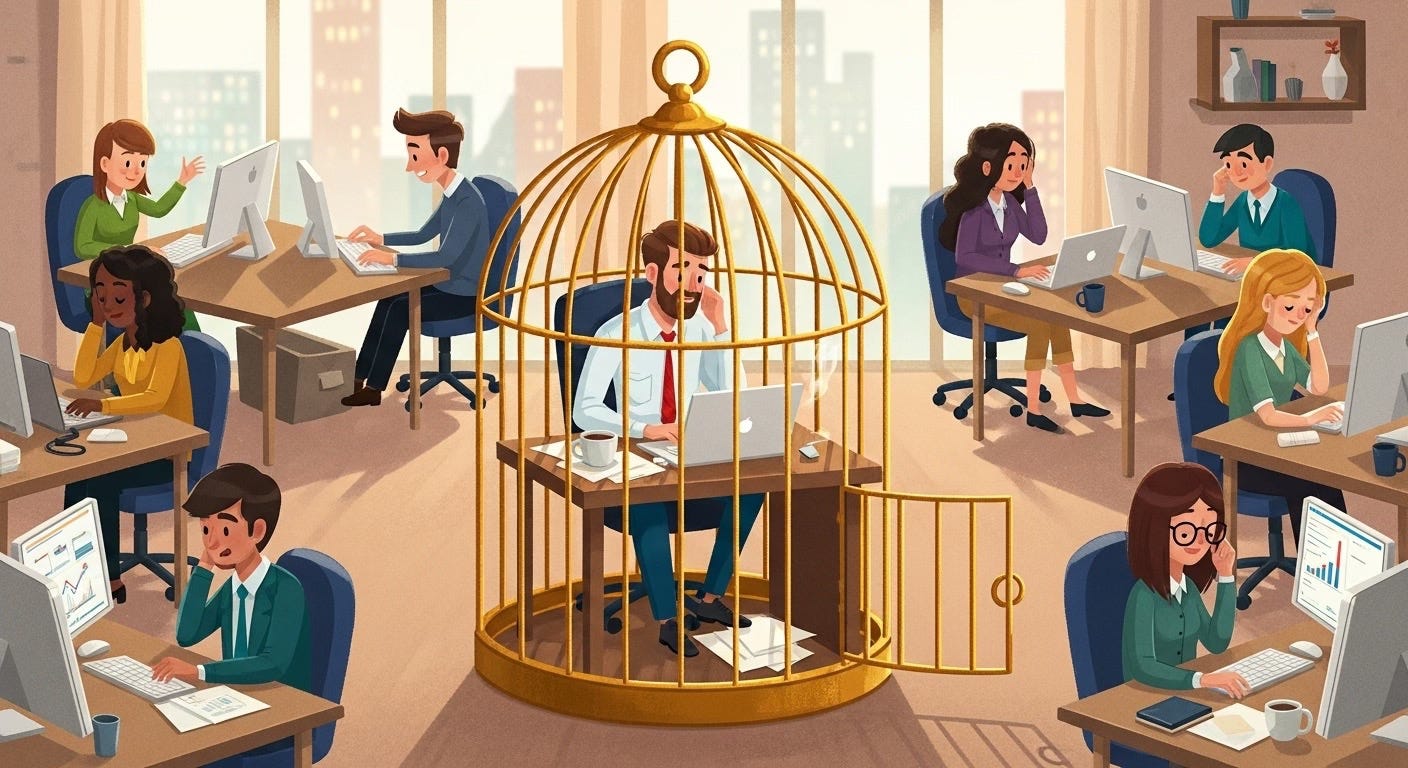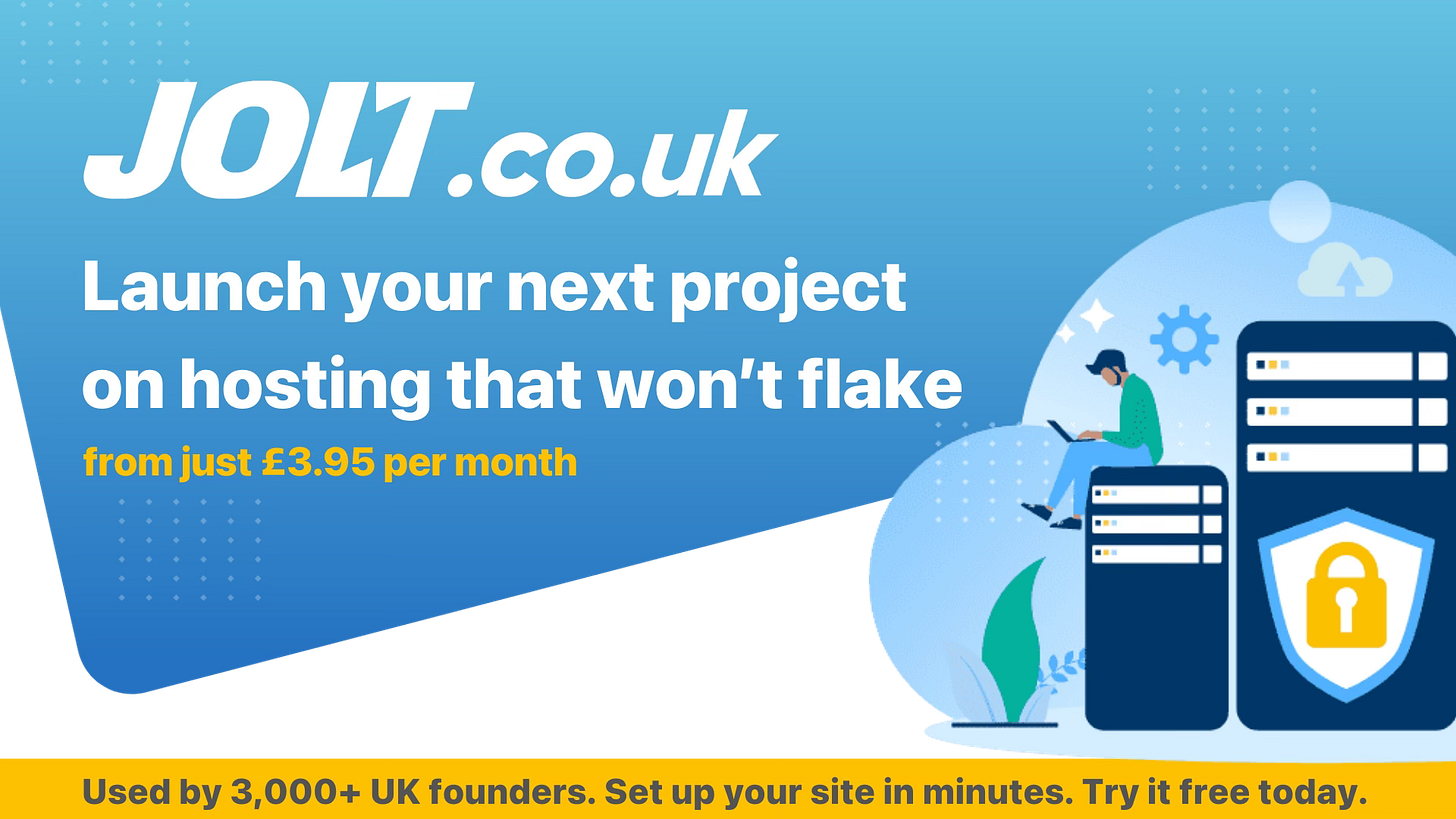The first office move feels obvious: more people, more space. But it’s never just logistics.
An office move sits at the crossroads of cost, culture, and leadership. Get it wrong and you trap yourself in the wrong space… or the wrong pace. Get it right and your team can finally breathe.
Speaking with Joe Averill, founder of Level Workspace, made one thing clear: too many founders rush leases, over-buy space, or treat the move as a vanity upgrade instead of a strategic one.
Here are the three questions every founder should ask before signing anything. 👇🏻
— Millennial Masters is sponsored by Jolt ⚡️ Reliable hosting for modern builders
1️⃣ How much space does growth really need?
Joe’s seen founders double headcount within 18 months and get trapped in long-term leases that suffocate their flexibility.
It’s easy to equate more desks with progress. The smarter move is to think in phases.
Could you start smaller, then expand within the same building? Can rent scale with actual headcount? Are there options to add or release space without painful penalties?
The goal is to stay nimble while your company finds its rhythm.
2️⃣ What’s your office really for?
Most founders still budget for a desk per person. Joe tells them to stop. “If you’ve got fifty people, you probably only need twenty desks,” he said.
“Buildings now come with breakout areas, cafés, and auditoriums. You can bring everyone together once a month without paying for dead space.”
This shift forces a deeper question: what is the office for?
If your team mostly collaborates remotely, the space’s job isn’t to host everyone, but to host moments, whether it’s planning sessions, town halls, or team bonding.
Think about how the environment makes people feel. Are there spaces for deep work and spontaneous chat? Does it match how your team actually operates, not how you wish they did?
3️⃣ What’s the real cost of being here?
Every owner knows the headline rent. Few know what the deal truly costs.
Joe calls the process “a minefield”. Hidden clauses, service charges, dilapidations, maintenance, connectivity, insurance… the list adds up. “Most people don’t know what they don’t know until they’re halfway through the process,” he said.
Before touring anything, ask yourself:
Do we understand the total cost over three to five years?
Who owns the relationship with the landlord, and who’s advising us?
Are we clear on exit options if the business changes?
The right deal protects your cash and your focus. The wrong one will quietly drain both.
Your office is a mirror of your mindset
As Joe talked about his own journey, he said: “You’ve got to back yourself and believe in yourself, because in times of turbulence, that’s all you have.”
That’s why an office move is a statement of intent. It tells your team who you are and what you expect.
It’s the first thing clients and new hires see, and the quiet reminder of what you’re building.
Choose a space that mirrors the business you’re growing into, not the one you’re outgrowing.
Before you sign
Your first office proved you could start.
Your next one proves you can scale.
So before you fall in love with the view or the postcode, pause on these three questions:
Does it flex with your future?
Does it bring people together for the right reasons?
And does the deal truly serve you, or slowly trap you?
If the answers aren’t clear, you’re not ready to sign.
More office life from Millennial Masters:









Yes, if it's not supporting our future dreams and visions... move on.